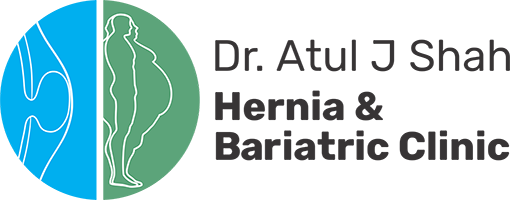
A hernia occurs when a tissue/organ pushes through a weak spot in the connective tissue or surrounding muscle. There are different types of hernia and hernia symptoms; some may be painless, while others can cause discomfort and result in serious health issues if left untreated. Therefore, it’s better to know about the different types of hernias and how hernia affects health for timely diagnosis.
Top 5 Different Types Of Hernias
1) Inguinal Hernia
This is one of the most common types of hernia that occurs when part of the fat or intestine pushes through the wall of the lower abdomen, generally into the groin area. Males are often more prone to this type of hernia. Inguinal hernia causes a bulge, coughing, bending, or pain while lifting. If it’s not treated on time, it can result in complications such as obstruction or intestinal strangulation.
2) Femoral Hernia
This happens just below the groin and is usual in females. A femoral hernia can initially be small and painless, but it can grow with time. As the femoral canal is narrow, a femoral hernia has a higher risk of getting trapped or strangulated, which requires immediate medical attention.
3) Umbilical Hernia
Umbilical Hernia takes place near the belly button, and it happens when abdominal tissue protrudes through the wall of the abdomen. These are primarily common in infants but can also be seen in adults because of pregnancy, heavy lifting, and obesity.
Also Read: Can A Hernia Surgery Be Done Without Mesh?
4) Hiatal Hernia
When part of the stomach pushes up into the chest via the diaphragm, a hiatal hernia occurs. It can result in heartburn, acid reflux, difficulty in swallowing, and chest pain. However, these can be managed with lifestyle changes and proper medication, but severe cases may require surgery to prevent further complications.
5) Incisional Hernia
It develops at the area of a previous surgical incision in the wall of the abdomen. Incisional hernia can result in pain, swelling, and discomfort, specifically during physical activities. If left untreated, these types of hernias may enlarge or cause bowel obstruction, requiring surgery.
In Conclusion
Hernias can have a severe effect on your health in various ways, from minor discomfort to serious complications. It’s essential to seek timely medical advice and recognise the types of hernia to prevent long-term health problems.
According to Dr. Atul Shah, maintaining a healthy lifestyle, managing body weight, and avoiding heavy lifting can help reduce the risk and hernia symptoms. However, early detection of hernia symptoms and appropriate care is the best approach to protect your overall well-being.




